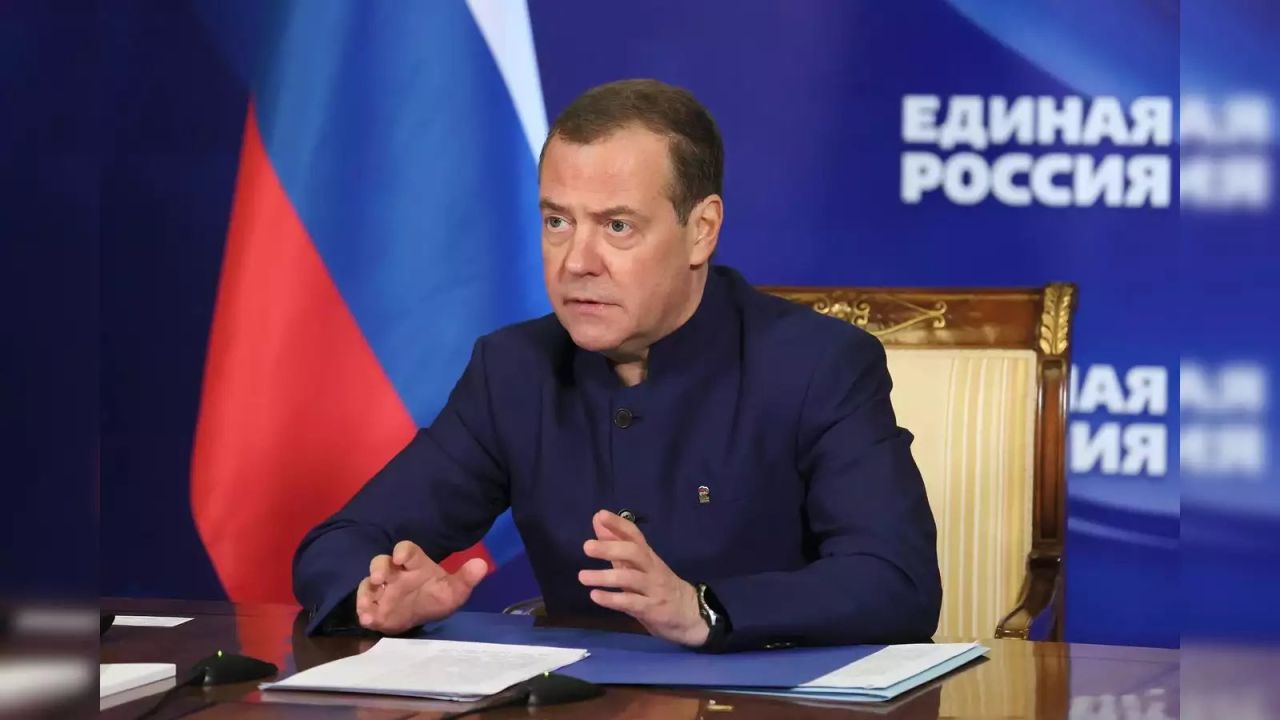Identified Logical Fallacies:
Straw Man Fallacy:
Medvedev oversimplifies and misrepresents the actions and motivations of the USA and NATO, implying that their only goal is to destroy Russia by any means. This mischaracterization creates an easier target to attack.
False Equivalence:
The speech suggests that the USA and NATO supplying weapons to Ukraine is equivalent to Russia supplying weapons to regions at war with those countries. This assumes the contexts and motivations behind these actions are the same, which may not be true.
Argumentum in terrorem:
By talking about the "destructive" use of Russian weapons and "burning in hellfire," Medvedev is trying to invoke fear and anxiety about the potential consequences, rather than providing a rational argument.
Ad Hominem:
Referring to European allies as "lapdogs" of America attacks their character and loyalty rather than addressing their actions or policies in a substantive way.
Slippery Slope:
Medvedev suggests that allowing the USA and NATO to supply weapons to Ukraine will inevitably lead to a situation where Russia has no choice but to arm other regions, which will result in widespread destruction. This argument assumes a chain reaction without evidence for each step.
Petitio principii:
The speech assumes that the USA and NATO supplying weapons to Ukraine is inherently wrong and an act of aggression against Russia, using this assumption to justify Russia's potential actions without proving the initial premise.
Appeal to Hypocrisy (Tu Quoque):
Medvedev argues that because the USA and NATO supply weapons to Ukraine, it is justified for Russia to supply weapons to their enemies. This deflects criticism by pointing out the perceived hypocrisy of the USA and NATO instead of addressing the morality or legality of Russia's actions.
False Dilemma:
The speech presents a binary choice: either Russia allows the USA and NATO to supply weapons to Ukraine unchallenged, or it retaliates by supplying weapons to their enemies. This ignores other potential diplomatic or non-violent solutions.
Appeal to Vengeance:
Medvedev's statement about rejoicing in the successful strikes against common enemies appeals to a desire for revenge rather than justice or self-defense. It encourages an emotional response based on vengeance.
Oversimplification:
The argument that any entity opposing the USA and its allies is automatically a friend of Russia oversimplifies complex international relations and alliances, ignoring the nuances of political beliefs and motivations.
Appeal to Authority (Ad Verecundiam):
Medvedev refers to the Russian President's statement as a significant change in foreign policy, using the President's authority to lend weight to the argument. This relies on the President's position rather than the merit of the policy change itself.





